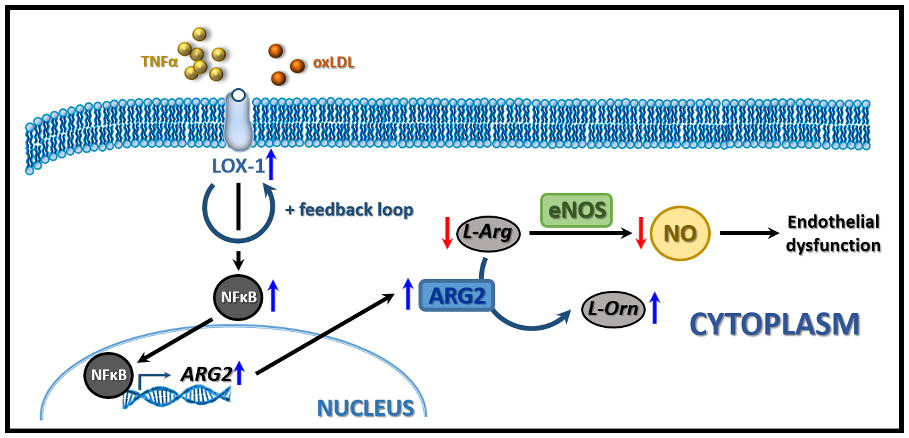LOX-1: A Crucial Driver of Endothelial Dysfunction in Patients with Rheumatoid Arthritis

Patients with rheumatoid arthritis - a chronic inflammatory disease that impairs the function of both joints and blood vessels - are at increased risk for cardiovascular death. Indeed, despite low levels of low-density lipoprotein cholesterol, these patients exhibit endothelial dysfunction and are at increased risk of death from cardiovascular complications, but the molecular mechanism of action is unknown. In this original research article Alexander Akhmedov and colleagues aimed to identify the molecular mechanism of endothelial dysfunction using both animal models and human tissue samples. Herein, the authors show that increased TNFα levels not only contribute to rheumatoid arthritis per se but also to endothelial dysfunction by increasing vascular oxLDL content and activation of the LOX-1/NFκB/Arg2 pathway, which eventually leads to decreased cGMP levels and thus reduced NO bioavailability. Anti-TNFα treatment improved both articular symptoms and endothelial function by reducing LOX-1, vascular oxLDL, and Arg2 levels. Full study results are available now online.